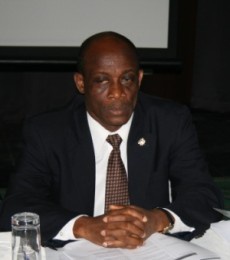Despite Ghana’s high economic growth rate, recent indicators show that the country is facing serious challenges in generating revenue to sustain its economic activities.
According to the Institute of Economic Affairs (IEA), the country is suffering the fallouts of cyclical, politically-driven indiscretion along with carry-over substantial level of arrears.
“Currently, the economy is cash-strapped, not enough revenue is being collected. Donor disbursements are lagging. The slack is being made up by borrowing. Arrears to contractors and other government creditors remain unpaid. The statutory funds are not being funded,” Dr. J. K Kwakye, Senior Economist at the IEA stated at a press briefing on the state of Ghana’s economy.
He stressed that the monetary policy is being constrained by fiscal dominance in the economy, which puts stress on inflation and the exchange rate.
“No wonder International Monetary Fund (IMF) describes Ghana as spending like a middle-income country (MIC) but taxing like a low-income country (LIC),” he said.
Dr. Kwakye indicated that high government borrowing, inefficiencies in the banking industry and high borrower risks have also increased the lending rates to as high as 30 per cent.
“At 16 per cent the Monetary Policy Rate may look high compared to inflation of about 11 per cent. However with lending rates at 30 per cent and the Treasury Bill Rate at 22 per cent, the PR may not be high enough,” he said.
He further observed that “the persistence of the Guggisberg economy has been the bane of the Cedi, which has followed a declining path since a flexible exchange rate was adopted in 1983.
This year the slide is back on as a result of continuing strong demand, weak investor appetite, donor apathy and reduce intervention by the central bank, given its low reserve,” Dr. Kwakye said.
He also indicated that suggestions by authorities to float the Eurobond to bring back stability may not be good, adding, “This will only be a stop gap measure. Long-term stability of the currency hinges on addressing the economy’s weak fundamentals on as durable basis.”
He advocated an overall reduction in expenditure, adding that the wage bill must be contained by cleaning up the payroll system and downsizing the public sector to rebalance expenditure.”
Additionally, he proposed the enforcement of budget spending limits to control borrowing and reduce inflation.
He called for the widening of the income tax net and adoption of new measures to tax the large informal sector through stringent measures to enforce tax laws.
“Tax collections should be intensified in lax areas such as property tax and rent income tax. Tax exemptions should be reduced,” he added.
Business News of Saturday, 20 July 2013
Source: Daily Guide
‘Economy is cash strapped’













